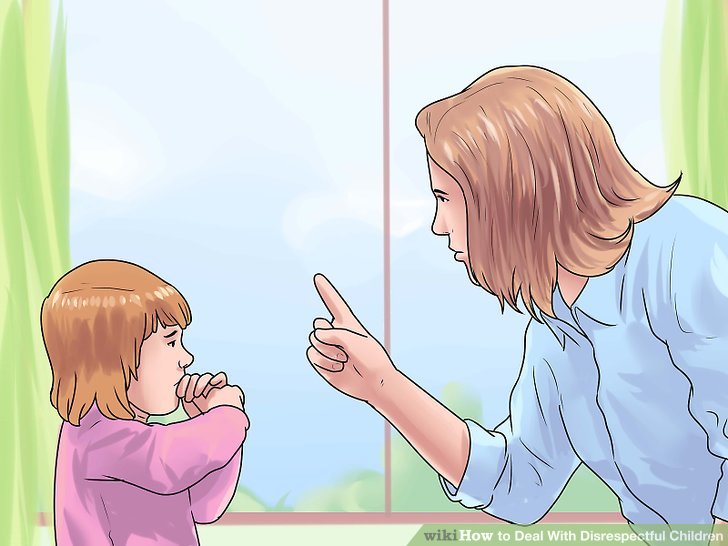Is Your Child ODD? Understanding Oppositional Defiance Disorder


“For many people, one of the most frustrating aspects of life is not being able to understand other people’s behavior.”
All children, especially when tired, hungry, stressed or upset, can act oppositional from time to time. This oppositional behavior might include arguing, talking back, disobeying, and defying their parents, teachers, and other adults. Oppositional behavior can be a normal part of development for two to three year olds and early adolescents. However, being openly uncooperative and hostile on a frequent and consistent basis becomes a serious concern, especially if it stands out when compared with other children of the same age and developmental level, and when it affects the child’s social, family and academic life. Although children can be difficult and challenging at times, if there is a persistent pattern of tantrums, arguing, and angry or disruptive behavior toward you and other authority figures, your child or teen may have Oppositional Defiance Disorder (ODD).
Oppositional Defiance Disorder (ODD) is thought to be caused by a combination of psychological, biological, and social factors. A child’s natural disposition, along with lack of structure or parental supervision, inconsistent discipline practices, and exposure to abuse or community violence have been identified as factors, which may contribute to the development of ODD.
ODD typically occurs in families with a history of Attention Deficit Hyperactivity Disorder (ADHD), substance use disorders, or mood disorders such as depression or bipolar disorder. Studies which have looked at brain images of children have suggested that children with ODD may have subtle differences in the part of the brain responsible for reasoning, judgment and impulse control. In psychological studies, findings have indicated children who display aggressive behavior have trouble correctly identifying and interpreting social cues from peers. The aggressive children tend to see neutral situations with children as being hostile. Children with ODD also tend to generate fewer solutions to problems while expecting to be rewarded for their aggressive responses. Children with oppositional defiant disorder may have trouble in school with teachers and may struggle to make and keep friends. Due to this difficulty in reading social cues, children might inappropriately be identified as having Autism Spectrum Disorder.
For many children diagnosed with ODD, symptoms do improve over time. There is evidence through follow up studies that the signs and symptoms of ODD resolve within 3 years in approximately 67% of children diagnosed with the disorder. Research also indicates that approximately 30% of children with ODD eventually develop conduct disorder. The risk for developing conduct disorder is 3 times greater for children who were initially diagnosed at a very young age (e.g., preschool). ODD may also be a precursor to other, more-severe problems such as substance abuse and severe delinquency. Children diagnosed with ODD while in preschool are also likely to exhibit additional disorders several years later, including ADHD, anxiety, or mood disorders. Approximately 10% of children diagnosed with ODD will eventually develop a more lasting personality disorder, such as Anti-Social Personality Disorder.
What ODD Looks Like in Your Child:
At times it can be difficult to recognize the difference between a “strong-willed” or emotional child and one with oppositional defiance disorder. Although it’s normal to exhibit oppositional behavior at certain stages of a child’s development, there is a difference between the usual independence-seeking behavior of children and that of Oppositional Defiance Disorder.
Symptoms of ODD may include:
- Frequent temper tantrums
- Excessive arguing with adults
- Often questioning rules
- Active defiance and refusal to comply with adult requests and rules
- Deliberate attempts to annoy or upset people
- Blaming others for his or her mistakes or misbehavior
- Often being touchy or easily annoyed by others
- Frequent anger and resentment
- Mean and hateful talking when upset
- Spiteful attitude and revenge seeking
The symptoms are usually seen in multiple settings, but may be more noticeable at home or at school. One to sixteen percent of all school-age children and adolescents have ODD. Many parents report that their child with ODD was more rigid and demanding than the child’s siblings from an early age. Signs of ODD are generally present before a child is 8 years old. Although ODD can sometimes develop later, it’s almost always present before the early teen years. When ODD behavior develops, the signs tend to begin gradually and then worsen over months or years.
A child may be displaying signs of ODD instead of normal moodiness if the behaviors are persistent, have lasted at least 6 months, and are clearly disrupting the family or home environment.
DSM-IV Criteria for oppositional defiance disorder to be diagnosed include a pattern of behavior that lasts at least six months and includes at least four of the following:
- Often loses temper
- Often argues with adults
- Often actively defies or refuses to comply with adults’ requests or rules
- Often deliberately annoys people
- Often blames others for his or her mistakes or misbehavior
- Is often touchy or easily annoyed by others
- Is often angry and resentful
- Is often spiteful or vindictive
It’s important to remember a child diagnosed with ODD isn’t likely to see his or her behavior as defiant. Instead, they will probably believe that unreasonable demands are being placed on them.
Treatment Options
As a parent, you might feel overwhelmed in trying to manage your child’s behaviors related to ODD. You might be reluctant to accept the diagnosis of ODD for fear it might reflect negatively on your parenting skills. It’s important to realize there is a combination of factors involved in a child developing ODD. Instead of focusing on what you might’ve done wrong, turn your focus instead on how you can move ahead and get your child the help he/she needs. The earlier this disorder can be managed, the better for you and your child. Treatment can help restore your child’s self-esteem and rebuild a positive relationship between you and your child. Your child’s relationships with others in his or her life also will benefit from early treatment. Medical Doctors, Psychologists, and child development experts can help.
There is no single treatment for children with ODD. Treatment of ODD involves therapy, training to help build positive family interactions, and possibly the use of medications to treat related mental health conditions. The most effective treatment plan will need to be individualized to the needs of each child and their families. It’s important to note treatment must be delivered for an adequate period of time (at least 6 months or longer) and may require follow up sessions. Treatment will often include both individual and family therapy and the therapist may need to develop a plan to work with your child’s school and classroom teacher. Teaching the child appropriate problem solving skills training along with family interventions such as parent management training and school based interventions have been found to be the most effective forms of treatment. During the parent management training, parents learn more-effective parenting techniques, which lead to improvement in the quality of the parent-child relationship and decreased problem behaviors. Your child might also benefit from social skills training that will help him or her learn how to interact more positively and effectively with peers. Social skills training will also increase flexibility and improve social skills and frustration tolerance with peers.
Medications alone generally aren’t used for ODD unless another disorder co-exists. Medication may be included as part of the treatment if the child is also diagnosed with ADHD, depression, or anxiety. It’s important to diagnose and treat any co-occurring illnesses because they can create or worsen irritability and defiance if left untreated.
Questions to consider when meeting with your medical doctor or mental health professional
- What are your concerns about your child’s behavior?
- When did you first notice these problems?
- Have your child’s teachers or other caregivers reported similar behaviors in your child?
- How often over the last six months has your child been spiteful or vindictive, or blamed others for his or her own mistakes?
- How often over the last six months has your child been touchy, easily annoyed or deliberately annoying to others?
- How often over the last six months has your child argued with adults or defied or refused adults’ requests?
- How often over the last six months has your child been visibly angry or lost his or her temper?
- Do any particular situations seem to trigger negative or defiant behavior in your child?
- How have you been handling your child’s disruptive behavior?
- How do you typically discipline your child?
- How would you describe your child’s home and family life?
- What stresses has the family been dealing with?
- Has your child been diagnosed with any other medical conditions, including mental health conditions?
Effective Parent Management Techniques
Although the following parent management techniques may seem like common sense, learning to use them in the face of opposition isn’t easy, especially if there are other stressers at home. Learning these skills will require consistent practice and patience. Most important in treatment is for you to show consistent, unconditional love and acceptance of your child — even during difficult and disruptive situations. Don’t be too hard on yourself. This process can be tough for even the most patient parents!
At first, your child probably won’t be cooperative or appreciate your changed response to his or her behavior. Expect that you’ll have setbacks and relapses, and be prepared with a plan to manage those times. In fact, behavior can temporarily worsen when new limits and expectations are set. However, with perseverance and consistency, the initial hard work often pays off with improved behavior and relationships. Many children with ODD will respond to the positive parenting techniques.
Effective strategies to decrease ODD behaviors include:
- Give effective timeouts
- Model the behavior you want your child to have
- Avoid power struggles. Almost everything can turn into a power struggle — if you let it
- Remain calm and unemotional in the face of opposition, or take your own timeout, if necessary
- Recognize and praise your child’s good behaviors and positive characteristics. Be as specific as possible, such as, “I really liked the way you helped pick up your toys tonight.”
- Offer acceptable choices to your child, giving him or her a certain amount of control
- Set limits and enforce consistent reasonable consequences. Limit consequences to those that can be consistently reinforced and if possible, last for a limited amount of time
- Establish a schedule for the family that includes specific meals that will be eaten at home together, and specific activities one or both parents will do with the child
- Set up a routine. Develop a consistent daily schedule for your child. Asking your child to help develop that routine may be beneficial.
- Work with your partner or others in your household to ensure consistent and appropriate discipline procedures.
- Assign your child a household chore that’s essential and that won’t get done unless the child does it. Initially, it’s important to set your child up for success with tasks that are relatively easy to achieve and gradually blend in more important and challenging expectations. Give clear, easy-to-follow instructions.
Importance of Parent Self Care! Being the parent of a child with ODD isn’t easy. Counseling for you can provide you with an outlet for your frustrations and concerns. In turn, this can lead to better outcomes for your child because you’ll be more prepared to deal with problem behaviors. Here are some tips to help you:
- Learn ways to calm yourself. Keeping your own cool models the behavior you want from your child.
- Take time for yourself. Develop outside interests, get some exercise and spend some time away from your child to restore your energy.
- Be forgiving. Let go of things that you or your child did in the past. Start each day with a fresh outlook and a clean slate.
- Seek the help of a mental health professional to help you deal with your frustrations.
Support in School for Children with ODD Oppositional Defiance Disorder (ODD) is one of two pediatric behavioral disorders defined by the Diagnostic and Statistical Manual IV (DSM IV) that are included in the Federal IDEA definition of “Behavioral Disturbances.” While not as serious as a Conduct Disorder, which tends to include aggression and property destruction, ODD as a behavioral disorder, still compromises a student’s ability to succeed academically and develop meaningful relationships with peers and teachers.
Students diagnosed with ODD can receive instruction in the general education settings if it is determined that the disorder does not prevent him/her from participating fully in the general education classroom. It is also possible that students with ODD who are receiving academic instruction in programs for Emotional Disturbances (ED) can manage their own behavior to the point where they can be successfully integrated into the general education classrooms.
Although all students benefit from classroom settings with structure and clear expectations, for students diagnosed with ODD, it is critical that structure is clear, explicit and above all consistent (regardless of setting). Consideration to classroom organization for kids with ODD should be made (e.g. Seating arrangements that put children into clusters of 4 may be fine in settings where children are raised with high expectations, but creates too many opportunities for disruptive behavior for students with ODD). Students with ODD often use seating arrangements as occasions for work avoidance than about interpersonal dynamics or angst. Seating arranged in rows or pairs work better for student with ODD.
Effective classroom strategies for students with ODD
- Importance of Routines: Rather than rules, routines make expectations clear in a way that is value neutral, especially if the teacher can stay cool and collected. Instead of having a rule that says: “Never get out of line,” teachers can have a routine that the class practices such as getting into line, walking without touching or bothering neighbors, and getting quickly and quietly from point A to point B in school. Establishing routines means being pro-active, and planning thoroughly what the classroom expectations will be.
- Importance of Reinforcements: Teacher must pay attention to the things students like or think are important. Positive behavior contracts can be set up with the child and their input determines the types of reinforcements they will work for. Students can earn time listening to music in a quiet corner or earn free time on the computer to play educational games by completing academic tasks or earning points for appropriate behavior. Reinforcements can also include earning stickers and a positive note home. They do not need to be elaborate in order to be effective.
- Importance of being Calm, Cool, and Collected as the Teacher: The function of the behavior associated with Oppositional Defiant Disorder is often to engage people in authority in a tug of war or power play. The most important thing is not to engage in a battle no one will win.
Islam & Disciplining Children
A significant aspect of parenting in the Islamic model is learning how to properly discipline a child. In Islam children are entitled to many rights just as parents are. Some of the rights of a child are to be treated with fairness, kindness and compassion and to be protected from harm, even when being disciplined.
The Prophet Muhammad (peace be upon him) said: “Everyone of you is a protector and guardian and responsible for your wards and things under your care and a man is a guardian of his family members, and is accountable for those placed under his charge.” (Bukhari and Muslim). In another narration, the Prophet (peace be upon him) said: “Be afraid of God, and be just to your children.”If your child behaves in an aggressive and oppositional way, regardless of how you feel, it is never acceptable or justified to beat, abuse, or use excessive “discipline” to get children to be more submissive. Sadly, many children with ODD are never diagnosed and are just treated as “bad” or “spoiled” children. Their behavior is seen as “disrespectful” and they are alienated, humiliated, or marginalized and eventually completely cut off by their families.
Parents, therefore need to know the difference between behaviors that require discipline and those that require treatment. It is important to follow the guidelines above and thoroughly observe your child’s behavior. If you notice any of the signs mentioned over an extended period of time, please seek treatment options immediately and help improve the quality of your child’s life as well as your family’s.
 Dr. Nafisa Sekandari is the director and founder of Mental Health 4 Muslims.com. Dr. Sekandari is currently licensed and practicing in California and Arizona. Dr. Sekandari is also the current founder and director of MH4M Counseling and Education Center in Phoenix, Arizona. Additionally, Dr. Sekandari is a published author and lecturer.
Dr. Nafisa Sekandari is the director and founder of Mental Health 4 Muslims.com. Dr. Sekandari is currently licensed and practicing in California and Arizona. Dr. Sekandari is also the current founder and director of MH4M Counseling and Education Center in Phoenix, Arizona. Additionally, Dr. Sekandari is a published author and lecturer.

